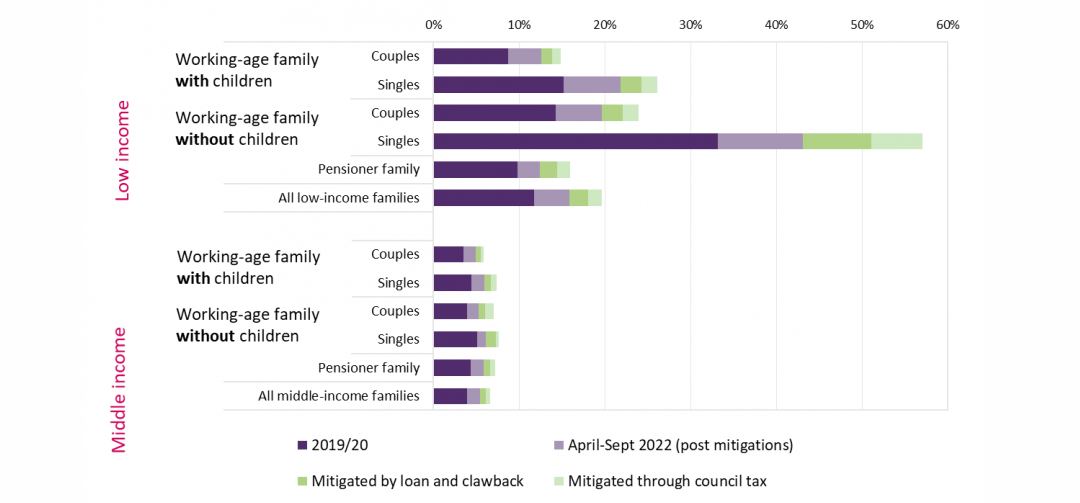Cost of living
New measures won't protect poorest families from new energy price cap
New analysis from JRF finds that, even after the deferral scheme for energy bills and council tax discount announced today are taken into account, once the new energy price cap kicks in:
- Families on low incomes will spend on average 16% of their incomes after housing costs on energy bills. This compares to 5% for middle-income families
- Single adult households on low incomes will spend a shocking 43% on average of their income after housing costs on energy bills
- Lone parent families on low incomes will spend 22% on average of their income after housing costs on energy bills
- Some families on low incomes will face annual bills as high as £2,326 from April
- For low-income families with children, the measures will mitigate just 36% of the increase in their bills on average. This compares to 59% for low-income single-adult households.
- Around three-quarters of people eligible for the council tax discount announced today are not in poverty
The analysis compares the household spend on gas and electricity bills of several different family types on low and middle incomes between 2019-20 and after the increase in April this year, before and after the two measures announced today.
The full analysis is available on request.
According to the JRF analysis of the Households Below Average Income series, in 2019/20 in Great Britain around three quarters of people in households with a council tax band of A to D were not in poverty After Housing Costs.

This news article is part of the cost of living topic.
Find out more about our work in this area.
